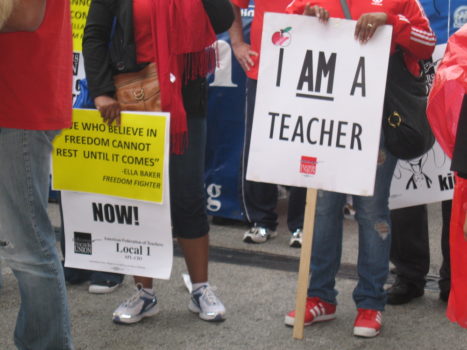 DC Shuttle …
DC Shuttle …
U.S. Education Department Investigates Foreign Gifts. Inside Higher Ed reported that foreign funding for U.S. colleges has now drawn the attention of the U.S. Department of Education. Last month, the department launched investigations into Georgetown University and Texas A&M “related to the universities’ reports of defined gifts and contracts … from or with a statutorily defined foreign source.” The article refers to Section 117 of the Higher Education Act, requiring universities to disclose the attainment of funding over $250,000 from a foreign source. A report issued by the Senate Permanent Subcommittee on Investigations (PSI) in February also focused on the impact of foreign funds on the U.S. education system and, in particular, funds from the People’s Republic of China. The PSI report concluded: “Foreign government spending on U.S. schools is effectively a black hole, as there is a lack of reporting detailing the various sources of foreign government funding.” However, the statue itself has been deemed unclear by various higher education associations, as well as Deputy Secretary for Education Mitchell Zais. Zais testified in February before the Senate PSI, stating at that time, “It’s unclear which schools report foreign gifts that are channeled through these foundations since the statute does not reference them.” Per the department’s letter, the universities in question will need to comply with the general counsel of the Education Department and produce various documents in regard to their funding and relationship with foreign entities.
Trump Administration on Accountability in Higher Education. The Department of Education’s top higher education official, Principal Deputy Under Secretary Diane Jones, spoke on a panel at Inside Higher Ed’sFuture of Higher Public Ed conference to elaborate on the Trump administration’s philosophy of transparency and deregulation. Jones explained that “government has an obligation to make data and information available to consumers … People should know what the outcomes might be so that they borrow responsibly.” Jones and her department have been working with Google on further developing the College Scorecard program first developed by the Obama administration. While Jones reiterated Scorecard’s current “work-in-progress” status, the site will provide data on student and parent college debt, as well as annual earnings reports of graduates one year after college. Under the Trump administration, Jones stated, “I’m sure that there will be researchers out there who use College Scorecard data to come up with a formula that would be a pass-fail line … It’s not going to be us.” Jones also defended the department’s repeal of the gainful employment rule, saying the department’s main goal is the transparency of the higher education market, rather than additional regulations. When questioned about the Obama administration’s $2 billion grant program to support community colleges, Jones replied, “How do you put federal resources out in such a way that it doesn’t give states the excuse to just pull more money out of higher ed? Because the federal resource isn’t always going to be there.”
Robert King Confirmed as Assistant Secretary for Postsecondary Education. Robert King was approved by the Senate 56 to 37 as assistant secretary for postsecondary education at the Department of Education. Among those in the New England delegation present at the vote, King’s confirmation was opposed by all except Sen. Susan Collins (R-ME). King was a top Kentucky higher education official and has worked as senior advisor at the U.S. Education Department since last year.
We publish the DC Shuttle each week featuring higher ed news from Washington collected by the New England Council, of which NEBHE is a member. This edition is drawn from the Higher Education Update in the Council’s Weekly Washington Report of July 15, 2019. For more information, please visit: www.newenglandcouncil.com.
Photo courtesy of Shutterstock.com.
[ssba]
